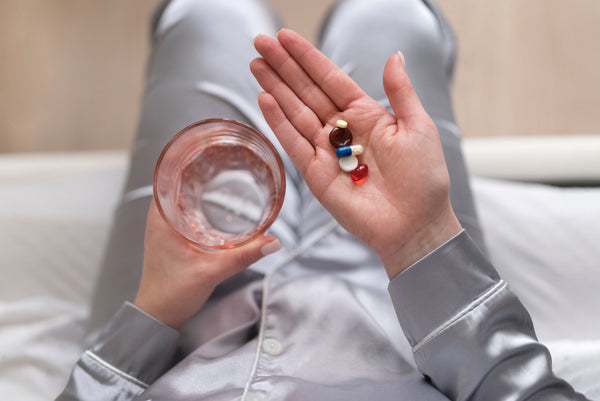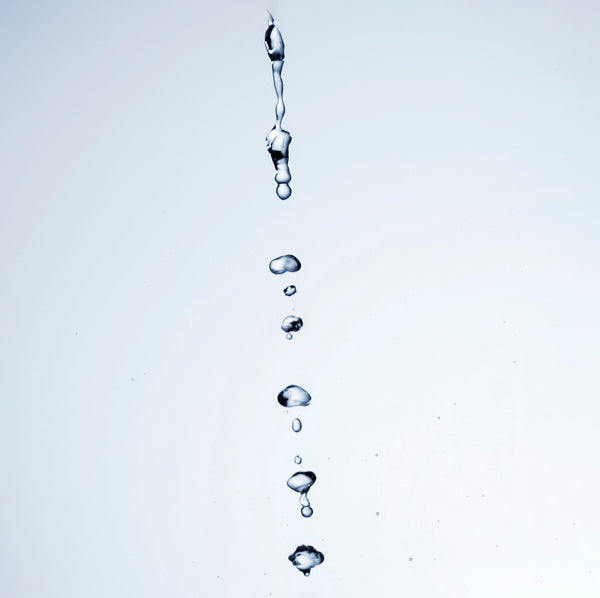Iron is one of the most important nutrients required at all stages of life. It plays a vital role in hemoglobin synthesis, a protein that carries oxygen to tissues in the body. Iron is an important component of many enzymes and the body uses iron to make myoglobin, a protein that provides oxygen to muscles.
Research shows that malabsorption of nutrients is a common aspect of ageing . There are other inevitable age-related changes like weakening of the gastrointestinal function and increased inflammation, which lead to nutrient deficiencies including iron deficiency. Deficiency of Iron in elderly can have moderate to life-debilitating implications like iron deficiency anemia (IDA), poor memory and response, weakness and fatigue, to name a few.
We list down 3 reasons why the elderly need iron supplements in addition to their daily diet.
1. Chronic Fatigue & Weak Muscles
Iron is responsible for binding with the oxygen molecule in the myoglobin and carrying oxygen to the muscles. Studies tell, on average, only 10-30 % of iron is absorbed from the iron food sources we consume and as we age, the iron reserves in the body begin decreasing due to low intake of iron or other health conditions, which impact iron absorption. This depletion in iron reserves leads to fatigue and weakness in the body. Decrease in iron impacts oxygen storing and carrying myoglobin in the muscle cells, which can lead to weak skeletal muscle adversely impacting functional performance.
2. Poor Cognitive function and Immune system
Iron deficiency in the body impacts almost all functions in the body that are essential to lead a healthy life. Impaired cognitive function and dementia are some age-related conditions observed in elderly persons. Research shows that iron deficiency is linked with low oxygen in brain cells and chronic low levels of iron in brain cells can lead to brain iron deficiency. Anemia caused due to iron deficiency is a common probable condition in adults aged 65 years and older. Studies suggest that anemia or abnormal hemoglobin concentrations are associated with an increased risk for dementia and rapid cognitive decline among the elderly. Iron is a vital nutrient that supports the immune system, it is required for many biochemical reactions of immune cells including metabolism and proliferation. Studies indicate that iron deficiency is associated with impairments in cell-mediation and innate immunity that may render older adults more vulnerable to infections.
3. Risk of Osteoporosis
Ageing brings a health threat along- osteoporosis. As per scientific evidence, iron is a vital mineral for all cells, including osteoblasts, which are involved in bone formation. Several studies reported that iron deficiency is both associated with low bone mass, and impacts osteogenesis, which means formation of bones, increasing the risk of low bone mass density and content. Weakening of bones due to nutritional deficiency including iron can increase the risk of fractures in old persons. Bone tissue is largely composed of type I collagen and iron plays a functional role in collagen synthesis and metabolism that’s essential for bone health.
It is vital to maintain iron adequacy in old age as all body functions slow down and require nutritional support to maintain optimum health. To make up for the loss of iron in the body, the elderly need bioactive iron supplements in addition to diet. Iron supplementation in bioactive form ensures effective absorption and increases the production of red blood cells, to reduce tiredness, fatigue and to support the normal function of the immune system.
Nano Iron Melts are rapid dissolving nano strips that convert key plant-based extracts into nanoparticles, which enter the system directly in an easy and fun manner. Simply place one strip on your tongue and in a few seconds you will get your daily value of iron. Each oral strip contains 100% plant-based, iron-rich foods like organic pumpkin seeds , organic spinach, organic beetroot, folic acid and iron extracted from a microencapsulated salt. These tasty and super-effective thin oral strips are gentle on the stomach and do not cause nausea, which makes them ideal and fit for daily consumption.
Research shows the benefits of having iron supplements with vitamin C , as it boosts iron absorption and increases hemoglobin production. Nano Iron Melts contain two rich sources of vitamin C- organic Swiss Chard and Acerola Cherry, which are known to enhance iron absorption by 50 %
This all-natural nutriscience marvel easily provides for iron requirements in elderly people using patented nano technology that extracts essential plant-based ingredients and converts them into tiny molecules - aka nanoparticles. Delivering a precise dose of natural bioactive ingredients in each strip. Daily intake of this revolutionary iron supplement will significantly elevate energy levels by boosting oxygen carrying hemoglobin production, improving defense against infections and cognitive function.
Iron supplementation is very beneficial for the elderly as it helps provide the body with the most important nutrient it requires to remain in an healthy and active state because, as they say, age is just a number !
References
Laura E Murray-Kolb, John L Beard, Iron treatment normalizes cognitive functioning in young women, The American Journal of Clinical Nutrition, Volume 85, Issue 3, March 2007, Pages 778–787, https://doi.org/10.1093/ajcn/85.3.778
Fairweather-Tait SJ, Wawer AA, Gillings R, Jennings A, Myint PK. Iron status in the elderly. Mech Ageing Dev. 2014;136-137:22-28. doi:10.1016/j.mad.2013.11.005
Hong, Chang Hyung et al. “Anemia and risk of dementia in older adults: findings from the Health ABC study.” Neurology vol. 81,6 (2013): 528-33. doi:10.1212/WNL.0b013e31829e701d
Namanjeet Ahluwalia, Jianqin Sun, Deanna Krause, Andrea Mastro, Gordon Handte, Immune function is impaired in iron-deficient, homebound, older women, The American Journal of Clinical Nutrition, Volume 79, Issue 3, March 2004, Pages 516–521, https://doi.org/10.1093/ajcn/79.3.516

























